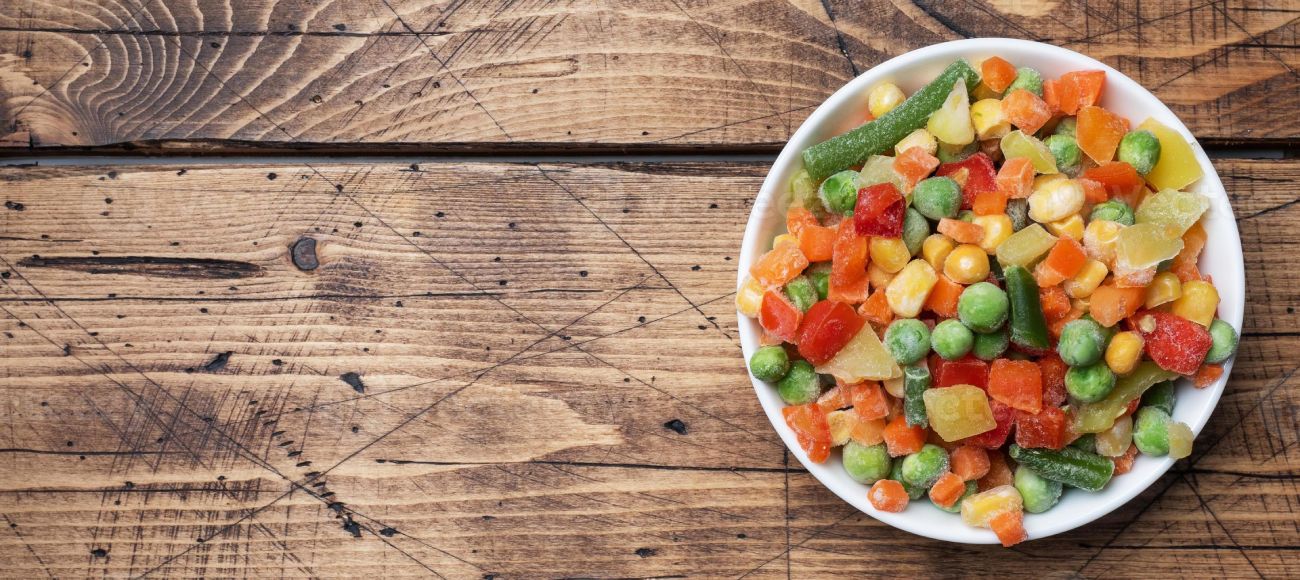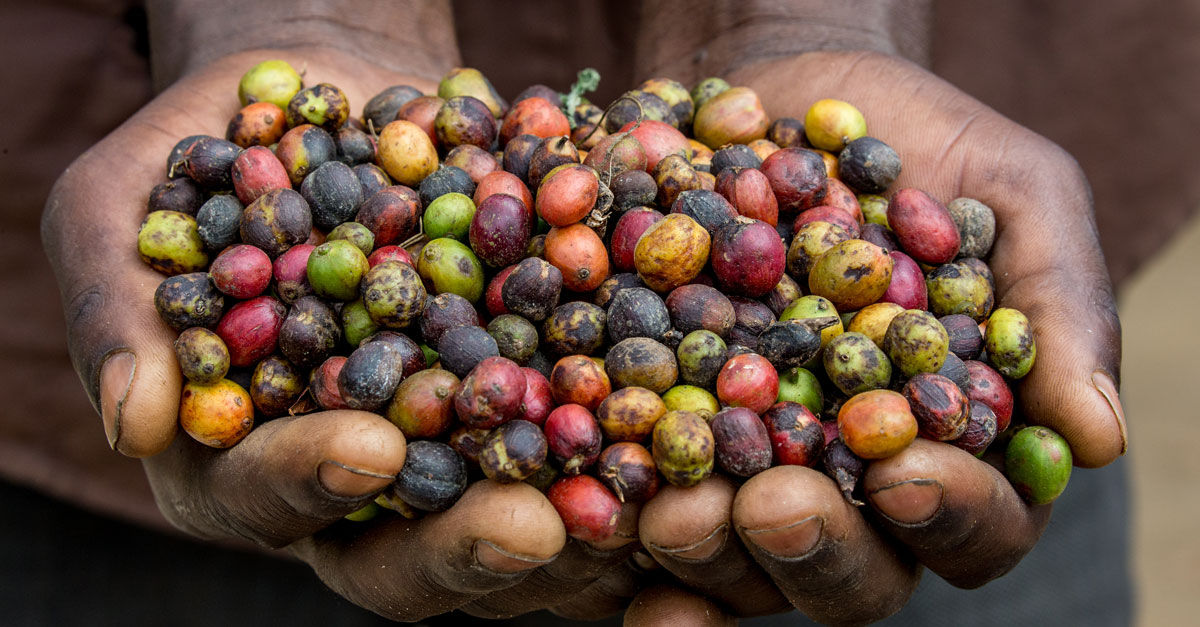
The World of Frozen Organic Foods: Benefits, Variety and Storage Tips
More and more people are consuming organic food, and it’s projected that the growth of organic food sales will outpace that of conventional food sales. This increasing popularity of organic food reflects a change in consumer preferences, particularly a growing demand for products that are free from synthetic pesticides, fertilizers, and genetic modifications.
According to another report, the frozen organic food segment will register the fastest growth between 2023 and 2030, beating the expected growth in the fresh, canned, and dried organic food segments. What could be the reason for the popularity of frozen organic food?
The Benefits of Freezing Organic Food
The production and sale of frozen organic food is an expected and natural development in the organic food industry. Freezing extends the shelf life of food products, so it’s an effective way to reduce food waste.
Frozen organic food can also be more sustainable. Since frozen food lasts longer, consumers can buy it in bulk, reducing their trips to the supermarket.
Additionally, freezing makes organic food more accessible. Since you can store organic food and ingredients at home, you can cook and eat healthier food any time, on demand.
Types of Frozen Organic Food Available in Supermarkets
You can find frozen vegetables, meat, fruits, convenience foods, and frozen desserts. The following are examples of frozen organic vegetables in supermarkets:
- Vegetable fries (cauliflower, broccoli)
- Peas
- Carrots and baby carrots
- Creamed spinach
- Mixed vegetables (e.g., peas and carrots, wok mixes)
- Brussel sprouts
- Leaf spinach
- Potato croquettes
- Curly kale
- Vegetable stock
- Broccoli
- Whole green beans
The following are examples of frozen organic meat and fish products:
- Chicken tenders
- King prawns
- Chicken broth
- Chicken stock
- Whole chicken
- Beef bone broth
- Beef stock
- Japanese Wagyu beef burger
- Japanese Wagyu beef yakiniku
- Cod fish fingers
- Cage-free whole turkey
The following are some frozen organic fruits sold in supermarkets:
- Blueberries
- Strawberries
- Blackberries
- Raspberries
- Berry mix
- Acai blends
- Acai smoothie
- Raw coconut meat
Tips for Storing Frozen Organic Foods
Properly storing frozen organic foods is crucial for maintaining their quality, taste, and nutritional value. More importantly, it will ensure your frozen organic foods remain safe.
Follow these tips when storing frozen food:
Keep your freezer at or below 0°F (18°C). This temperature is ideal for preserving food quality and preventing bacterial growth. This is why deep freezers are excellent for storing frozen food; they can attain lower temperatures than regular freezers.
Deep freezers operate more efficiently when they are packed tightly. Efficient operations mean the freezer can cool and freeze food more quickly.
You can directly store any unopened frozen food you bought from the supermarket (e.g., an unopened bag of peas) in the freezer in the packaging they came in. Meat, fish and other unpackaged stuff should be stored in freezer-safe plastic containers. Store cut-up fruits and vegetables in freezer bags. Using freezer-safe containers will help prevent freezer burn, which can adversely affect food quality.
When you pack your food for freezing, label it correctly. Write what it is (e.g., broccoli, lamb, etc.) and include a short description, as necessary (e.g., cut-up, cubed, etc.). Remember to note the date the food was stored in the freezer.
Do not store hot or warm food directly into the freezer. This can raise the overall temperature inside the freezer. How do you cool down cooked food quickly?
Contrary to what you might have heard, you can put hot food directly in the refrigerator. This is what the Food Safety and Inspection Service (FSIS) by the U.S. Department of Agriculture says. Divide the food into wide and shallow containers, then place them directly in the refrigerator. You may also put your food container in an ice bath before putting it in the freezer.
Just remember to refrigerate or freeze cooked food within two hours. One hour is the limit if it is warm out.
Thaw frozen food completely before cooking. However, remember that once food has been thawed, you must not refreeze it.
For frozen food in its original packaging, check the label for its best-until-date information. For other types of frozen organic food, three to 12 months of freezer storage is a good rule of thumb.
Different types of food have distinct recommended freezer storage time limits. For instance, fresh fish may be kept in the freezer for up to eight months, while cooked fish must be used within three months. Additionally, shucked mussels and scallops may be stored for up to 18 months.
This chart from FoodSafety.gov serves as a handy guide on precise frozen food storage time limits. Below is a summary of the information you’ll find there:
- Sausage (raw, cooked or frozen when purchased): 1-2 months
- Hamburger and ground meats: 3-4 months
- Fresh beef, veal, and lamb (steaks, chops, roasts): 4-12 months
- Fresh chicken and turkey (whole): 1 year (if whole)
- Fresh chicken and turkey (pieces): 9 months
- Fatty fish (bluefish, mackerel, salmon, tuna, etc.): 2-3 months
- Lean fish (cod, flounder, halibut, sole, etc.): 4-8 months
- Fresh crab and lobster (removed from shell): 2-4 months
- Shrimp and crayfish: 6-18 months
- Clams, oysters, mussels, scallops (shucked): 6-18 months
- Egg whites and yolks: 12 months
Note, however, that even if food remains safe in a freezer kept at or below 0°F, food quality will naturally suffer the longer it’s kept in the freezer. Therefore, after several months, food may become crumbly and mushy instead of crisp and firm.
Some foods do not lend themselves well to freezing. Food with high fat content can separate in the freezer. Egg yolks also do not freeze well. Thus, it’s best to freeze eggs as a mixture of egg whites and yolks.
Salad vegetables (e.g., lettuce), soft fruits and mushrooms also do not freeze well. They can form ice crystals that will damage their lovely texture. If you want frozen soft fruits, you may be better off buying them frozen – i.e., buy frozen strawberries instead of freezing fresh strawberries yourself.
Freezing Organic Food
Freezing lets you maximize your grocery shopping. You can freeze and store what you can’t immediately consume. Indeed, freezing reduces food waste and makes organic food accessible.
You can freeze organic food and find frozen organic food in organic supermarkets. Whether you freeze food yourself or buy it frozen, make sure to store, pack, and label it correctly to safeguard quality and ensure food safety.






